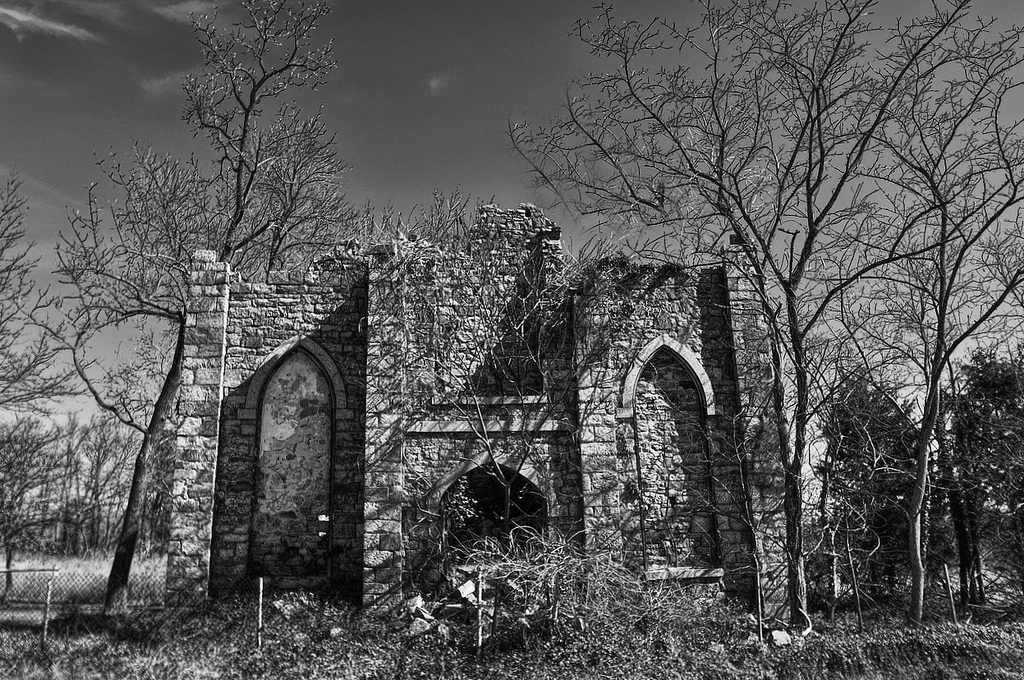-
Ordained a priest 7 years ago today. So grateful to God and to those that he has called me to serve. I’m especially thankful for my wife, Amber, who is a constant support, source of wisdom, and inspiration to me as she serves faithfully in her own ministries.
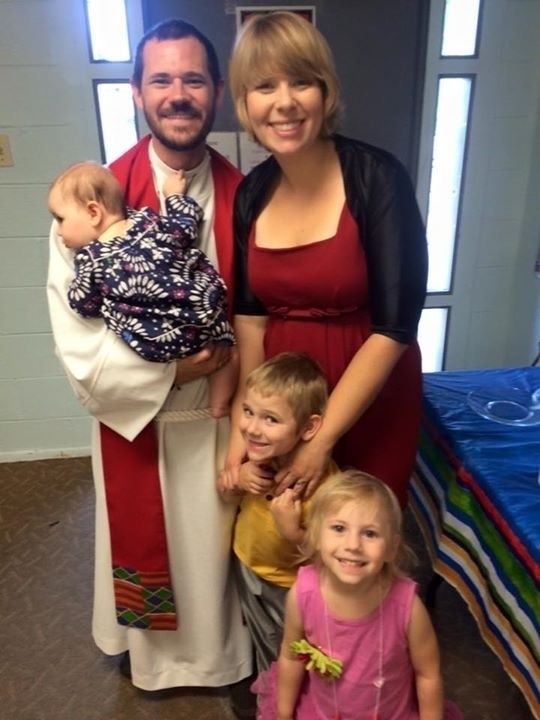
-
Today the Church celebrates James the Elder, Apostle.
O gracious God, your servant and apostle James was first among the Twelve to suffer martyrdom for the Name of Jesus Christ: Pour out upon the leaders of your Church that spirit of self-denying service, by which they may have true authority among your people; through Jesus Christ our Lord, who lives and reigns with you and the Holy Spirit, one God, now and for ever. Amen.
Art: Calling of Saint James and Saint John, James Tissot 1886-1894
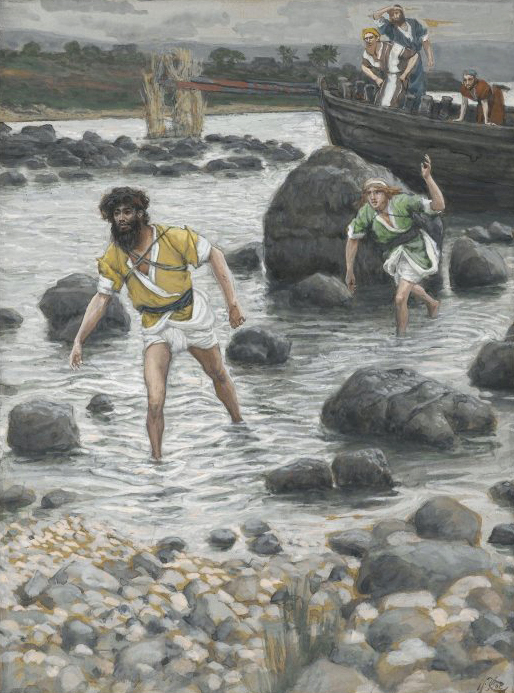
-
Lashed to the mast of Word and Sacrament
This how I try to understand and live out my pastoral and priestly vocation: “lashed to the mast of Word and Sacrament.”
“One more thing: We are going to ordain you to this ministry, and we want your vow that you will stick to it. This is not a temporary job assignment, but a way of life that we need lived out in our community. We know that you are launched on the same difficult belief venture in the same dangerous world as we are. We know that your emotions are as fickle as ours. That is why we are going to ordain you and why we are going to exact a vow from you.
We know that there are going to be days and months, maybe even years, when we won’t feel like we are believing anything and won’t want to hear it from you. And we know that there will be days and weeks and maybe even years when you won’t feel like saying it. It doesn’t matter. Do it. You are ordained to this ministry, vowed to it. There may be times when we come to you as a committee or delegation and demand that you tell us something else than what we are telling you now. Promise right now that you won’t give in to what we demand of you. You are not the minister of our changing desires, or our time-conditioned understanding of our needs, or our secularized hopes for something better. With these vows of ordination we are lashing you fast to the mast of Word and Sacrament so that you will be unable to respond to the siren voices.
There are a lot of other things to be done in this wrecked world, and we are going to be doing at least some of them, but if we don’t know the basic terms with which we are working, the foundational realities with which we are dealing – God, kingdom, gospel – we are going to end up living futile, fantasy lives. Your task is to keep telling the basic story, representing the presence of the Spirit, insisting on the priority of God, speaking the biblical words of command and promise and invitation.”
Eugene Peterson, Working the Angles
-
A brief outline of my spiritual journey
A brief outline of my spiritual journey though theological “phases”:
-
Childlike faith in God in Christ, interrupted by:
-
Fear-based “conversion”, leading to:
-
Semi-fundamentalism, which (due to the faithful way my parents discipled me in the grace and love of Christ as the fulfillment of the law) didn’t last too long because of an instilled resistance to letter-of-the-law thinking which opened the door to:
-
A desperately relieved re-discovery of the grace of God in Christ, which I found articulated most clearly by Reformation Christianity, which in turn formed me in:
-
A sacramental understanding of how God ordinarily communicates himself, a profound mystery that I found pervades all of life, and I understood to be articulated by the Church Fathers, who are presently convincing me of:
-
The truly cosmic implications of a God that is not simply a being but Being itself, that loves humans by becoming a human–Jesus of Nazareth, son of Mary–, that defeats death by dying on a cross, that lives to give life via union with him, in his Spirit.
Through it all there has always been an undeniable charismatic/mystical experience of God walking with me in a million ways:
-
sometimes through intentional practices
-
sometimes in unexpected breakthroughs
-
sometimes through the right word from the just right person at the just right time
-
always somehow intertwined with his Church…
…guiding me always and only to Jesus.
It is not as if I am developing a greater/ deeper understanding of Jesus' “part” in God’s plan. I am only ever more convinced Jesus is God’s plan. Jesus' way is God’s way. Union with Christ isn’t an aspect of life, it is life itself.
And what a journey it is…here’s the thing…I find the news to be better and better the more I believe the simple teachings of Jesus:
“The kingdom of heaven is at hand”
“Blessed are meek”
“Turn the other cheek”
“I have come to give life and life abundant”
“I will draw all men to myself”
(obviously I could go on)
I mean it’s almost too good to be true but somehow I believe it so deeply
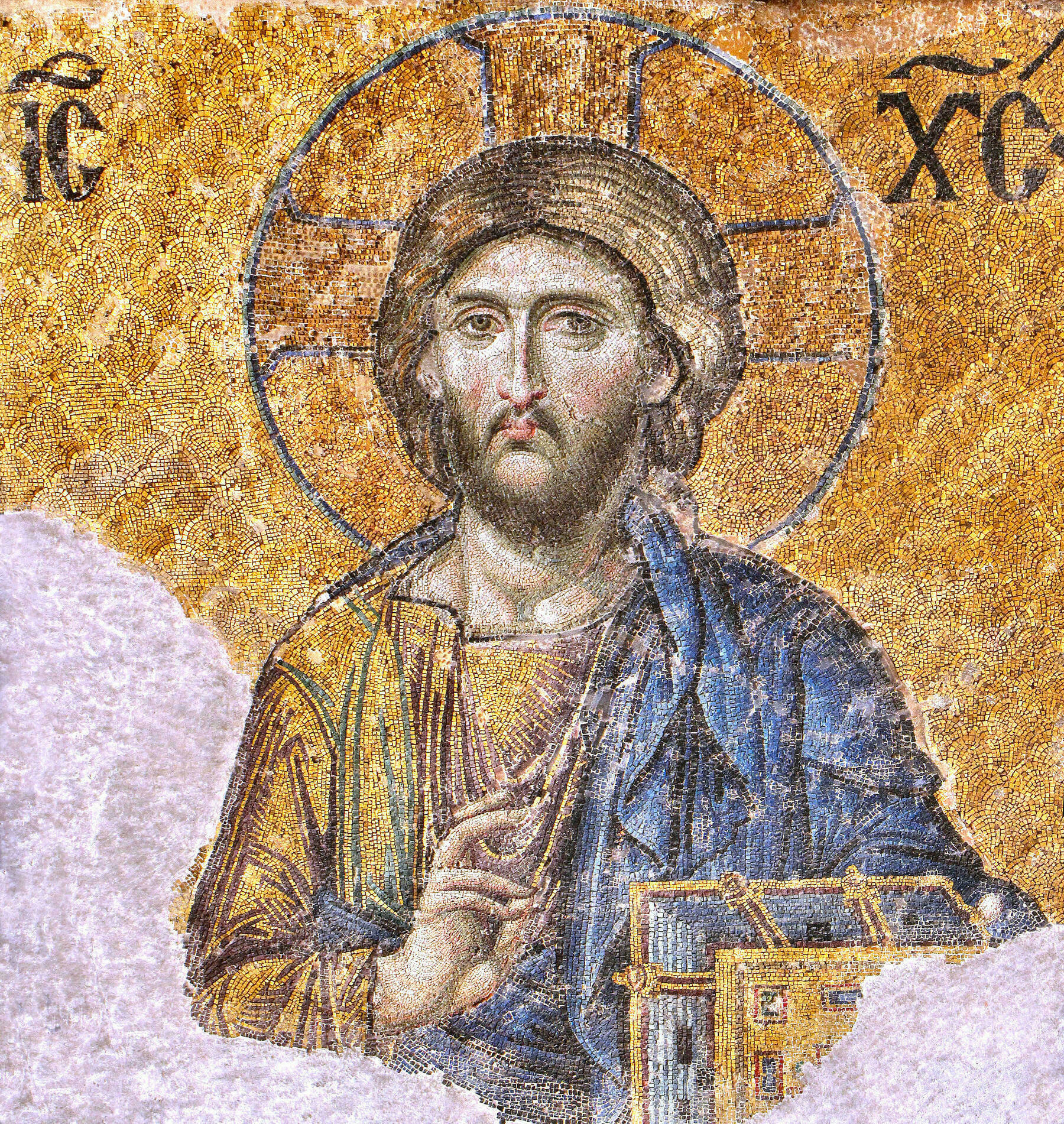
-
-
Interpreting the Thirty- Nine Articles
Religion with Room to Grow
Owen Chadwick in his essay “The Mind of the Oxford Movement” notes that church historian Thomas Fuller (17th century, mind you, not far removed from the Articles) said “that the Thirty-Nine Articles were like children’s clothes, made of a larger size so that the children might grow up into them. Whether the original authors of the Articles were looking for that breadth and liberty…is doubtful. [Yet] the statement [by Fuller] effectively represents the way in which Anglican moderation was seen to have room for persons attached, in mind or affection or devotion, to tradition.”
The historical fact seems to be that the Articles were interpreted in different ways from the very beginning! There was the immediate sense of the author’s intent, then there were others who wished a more lenient interpretation (which was certainly a legitimate possibility from the text itself). The Latitudinarians basically said, “if there’s no clear Scriptural prohibition, everything is on the table as long as it doesn’t get into that realm.” This would eventually develop into the broad church tradition, and in its more extreme form became the way of the Evangelical movement: The Scriptures, along with Reason and the Holy Spirit, were enough in themselves to arrive at the fullness of truth, without necessarily consulting the Fathers, etc.
Chadwick says, “The Latitudinarian dominance in English thought….so reinterpreted the Thirty-Nine Articles as to make them no longer the doctrinal hedge or guide which once, perhaps (but only perhaps), they successfully formed.”
The Oxford movement actually didn’t like this at first, because in their mind it chipped away at the teaching authority of the Church. Nevertheless when Newman threw out his interpretation, he is handling the Articles in ways they were already being handled. Another quote from Chadwick: “Whether or not Newman’s method was sound is a question. But the novelty was not in his handling the Articles to extract the maximum breadth from their language. The novelty lay in his handling the Articles in a Catholic direction.”
The Articles of Religion in their Proper Place
To lay a bit of groundwork: First, within the historical development of Anglicanism, we see a hierarchy of teaching authority:
First, The Biblical text itself.
Second, the teachings of the conciliar, undivided church as expressed in the dogmatic proclamations of the great councils.
Then, the teachings of the Fathers (where they speak with one voice).
Then, (four levels up!) the Thirty-Nine Articles and the teachings of the English Reformers themselves (which are meant to reform back to the Bible and Fathers).
Finally, reputable and godly contemporary scholars and theologians.
This hierarchy is key to a faithful way of interpreting the Articles that maintains historical and intellectual integrity.
Hermeneutical principles for the Articles
Now, a few principles on the Articles themselves, once we get there:
- The degree to which those statements are binding have to do with how in-concert they are with higher levels of authority (the Fathers and Scriptures). I refuse any doctrinal or ethical proposition that is in outright contradiction of the catholic consensus if that consensus can be reasonably argued from the Scriptures—as would the authors of the Articles themselves.
The Articles are not meant to expound new doctrines (a brief overview of the writings of the English Reformers will show this) but rather to express in language contemporary to the time the Catholic doctrines in opposition to the abuses and superstitions of the Roman church. They were meant to rein in some stuff that gone way too far. If we take them to be statements that are not highly influenced by their historical context, and fail to take that into account in our application of them to our own, different historical context, I think we are missing something. As we interpret them, we must do so in a way consistent with higher levels of authority.
- It is probable that the original authors did in fact mean to prohibit certain practices and doctrines that are arguably consistent with the Bible and witness of the Early Church, and thus catholic. Example: reservation of the Sacrament. However we are not bound so much by exactly how the orginal authors intended to apply the true catholic doctrines in the daily discipline of the church (although it’s important to keep in the conversation regarding interpretation and use of the Articles).
We agree the authors were fallible, but their desire to reform the church to consistency with the Bible and Fathers was sound. So, we are justified in being primarily concerned with the usefulness of the statements in the Articles in themselves as expressing pre-existing catholic doctrine reasonably argued from Scripture and Tradition, today. So the question is, are they still useful?
- Our Communion’s collective witness is that they are still useful, because they put in no uncertain terms the Bible in its rightful place of primacy and address issues that still plague the church today (for instance, Pelagianism and anti-Trinitarian heresy). Even interpreting them in the widest possible sense, the essential, catholic doctrines (including justification by faith) are preserved. Furthermore, keeping them as a standard helps us to remember our origins and the precious doctrinal, liturgical, and cultural heritiage we receive as heirs of the English Reformation.
Conclusion
Given the actual broadness of the wording, the uneven, yet enduring historical reception of the Articles in the Communion, and the principles of a hierarchy of authority, I think it is possible and even permissible (I’ll go further: even desirable!) to interpret the Articles in a way that permits certain practices and doctrines that the authors would have rejected at the time.
We do this to be as faithful as we can to higher levels of authority, while avoiding the messy and unneeded process of revising the Articles.
For example, we can (and to be intellectually honest, we must) acknoweldge that the Articles do probably intend to prohibit the reservation of the Sacrament as it was being practiced at the time. At the same time, we can reasonably argue that the current practice in Anglican churches of reservation for the sick does not violate the catholic doctrine set forth in the articles, (may in fact exemplify their spirit) and thus is in fact consonant with their deeper principles. Moreover, the text itself does not outright prohibit the practice, so we can accept the relevant text as-is, without revision. This is simply following the spirit of the “law” in the Articles with wisdom, rather than the letter.
Not only can we intepret the Articles this way, we should interpret them this way! We should do it openly, too, and show our work. This is because regardless of precise authorial intent, we want to interpret in harmony with the guiding principle of the Reformers: faithfulness to the higher levels of authority for the purposes of illuminating true, catholic (universal) doctrine and practice, while refuting superstition and abuse.
This is gives us some of the “room” of the Latitudinarians and, say, Newman-style interpretation without giving ourselves over to historical revisionism. We are able then to maintain faithfulness to catholic doctrine/practice and intellectual honesty.
-
A Must-Read for Every Aspiring Pastor
Note: this was originally published for The Anglican Mission in America blog.
Shortly after I began speaking with my pastor about the possibility of pursuing ordination with The Anglican Mission, he passed a copy of Michael Ramsey’s classic The Christian Priest Today my way.
Of course, I had no idea that this little book was by a former Archbishop of Canterbury, or that it was originally a set of addresses to candidates for ordination in the ’70s. As I’ve continued to digest the simple, yet profound wisdom in Michael Ramsey’s The Christian Priest Today, it’s become apparent to me why it’s remained pertinent for over four decades. I suspect it will endure many more.
In today’s world of marketing-speak and leadership-culture-infused ministry books, The Christian Priest Today is a breath of fresh air. Ramsey delves deep into what it means to be a pastor, a shepherd of souls. Discussions about developing your “personal brand,” and “leadership strategy” are blessedly absent. Not that there’s anything inherently or necessarily wrong with understanding how to apply those ideas to ministry, but something feels right about the simple way Ramsey speaks of preaching Jesus, living a life of prayer and cultivating a humble heart.
Although The Christian Priest Today is approaching the half-century mark from its first publication, Ramsey’s simple and direct style reinforce the underlying timelessness of his observations regarding the pastoral roles of deacon and priest and bishop. It remains fresh because Ramsey wasn’t seeking to be “cutting edge” (though he didn’t avoid contemporary issues) about a practice and vocation that itself is fundamentally timeless.
I was reminded that shepherding souls will always transcend leadership trends, business strategies, and academic accomplishments. Ramsey’s book gently re-taught me that pastoring has always been and will always be about bringing people to Jesus, pointing people to Jesus, telling people about Jesus.
A few nuggets of wisdom that were impressed on my heart and mind as I read:
“We are called, near to Jesus and with Jesus and in Jesus, to be with God with the people on our heart. That is what you will be promising [in your ordination vows]” (p. 14).
“Let those who are glad to be Catholics or Evangelicals or Liberals set themselves to learn all they can from one another, for the partisan can soon become a person who loves his own apprehension of the truth more than Christ who is the truth, and himself more than either” (p. 72).
“Be ready to accept humiliations. They can hurt terribly, but they help you to be humble…these can be so many changes to be a little nearer to our humble and crucified Lord. There is nothing to fear if you are in his hands.” (p. 80)
“Jesus Christ is himself the gospel we preach…He is himself the essence of the good news” (p. 27)
The Christian Priest Today is the sort of book I can imagine re-reading every year or two, just to help re-center on why I do what I do. It is the sort of book I can imagine giving other young pastors (because if you could only give one book on the pastoral ministry, this would be a strong candidate). It is the sort of book that remains in your thoughts and on your heart long after you’ve finished.
The Christian Priest Today by Michael Ramsey invites you to be refreshed by what God is doing in and through the ordained ministry, by calling you to re-focus on the heart of the Christian faith: the person of Jesus.
-
What is Anglicanism? by Charles Erlandson.
Probably one of the better definitions of Anglicanism I have read, and certainly one of only a few that has seriously attempted to describe our movement and spirituality without undue emphasis on one facet only.
-
Anglican Pastor graciously published my write up about the website I created for praying the Daily Office online.
-
This is such a great conversation with Anglican priest and author Tish Warren.
I totally get what she means about not having a “camp.” As a pacifist, catholic, evangelical, and charismatic Christian with lots of questions and a preference for highly nuanced answers…I also
sometimesoften feel like the odd person out. -
“I want the whole Christ for my Savior, the whole Bible for my book, the whole Church for my fellowship, and the whole world for my mission field.” - The Revd John Wesley, Anglican priest
This is what a Gospel-saturated heart desires.
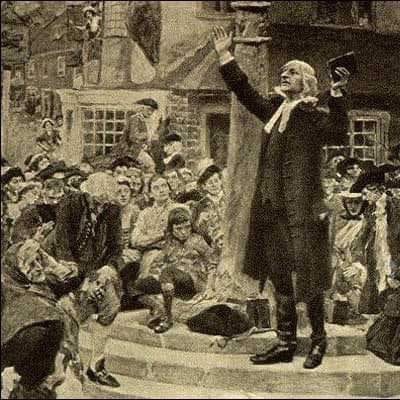
-
Today I got the August lectionary up at Anglican Daily Office. Took a little more work than I anticpated as I had test a few different formats/layouts to see what would work best on different size screens without complicating things. In the end I think I found something that works.
-
I made something today! Check it out: anglicandailyoffice.online You’ll find the texts for Morning and Evening Prayer from the 2019 Book of Common Prayer in an easy-to-scroll format for phones and tablets. I plan to add supplemental material, the lectionary, and additional offices as time allows.
-
A comprehensive and clear introduction.
The ACNA’s 2019 Book of Common Prayer (BCP): A Rookie Anglican Guide - Anglican Pastor
-
Opening Eucharist for the 10 year anniversary provincial assembly of the Anglican Church in North America at the beautiful Christ Church Cathedral!.
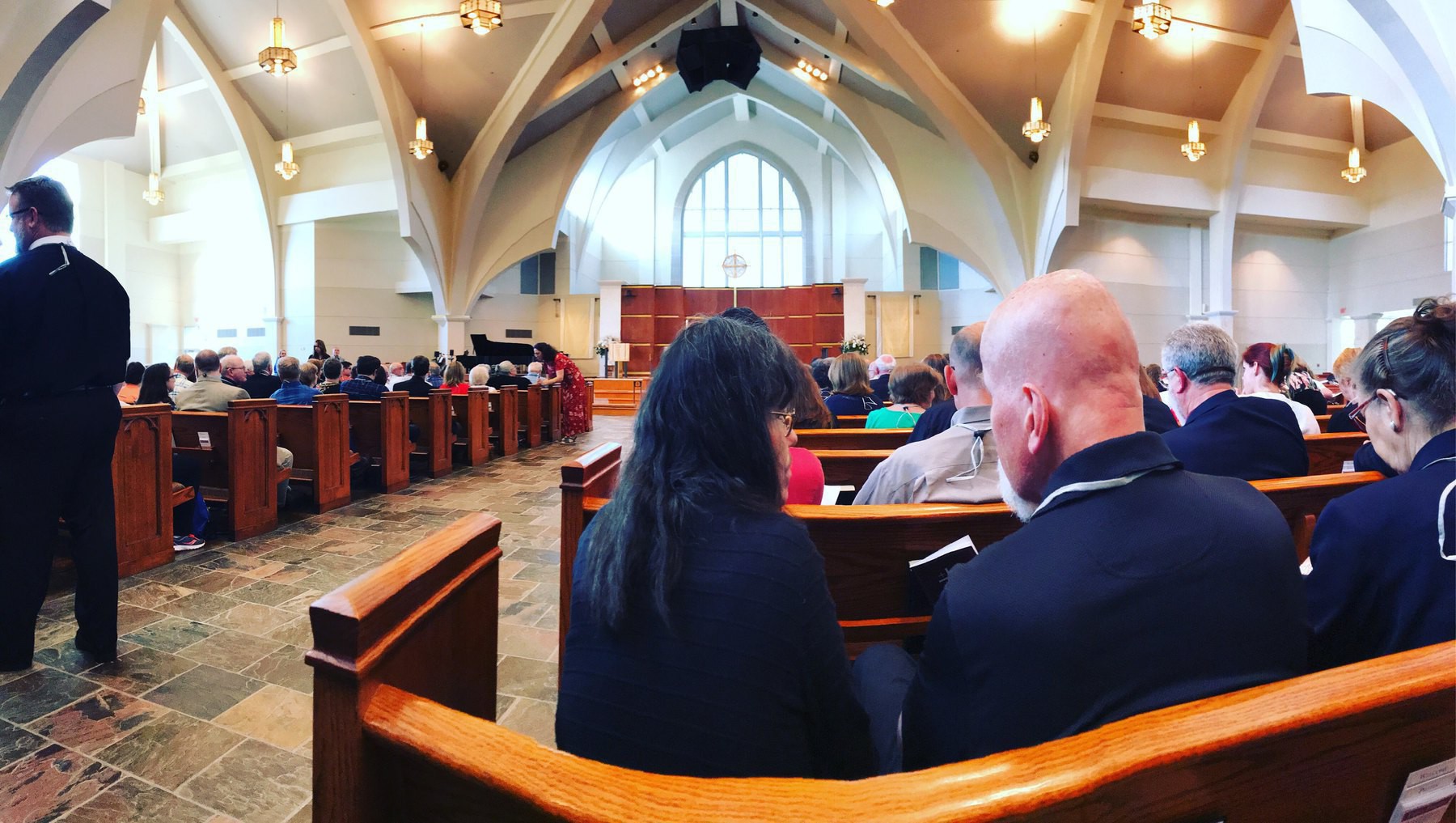
-
Hey friends, I was recently on the Daniel Generation podcast with my friend Drew, and it was a blast! Loved talking liturgy, Anglicanism, ecumenism, and discipleship! Give it a listen
-
How do I know that I’m saved? This is a question that plagues many faithful Christians, particularly those in Evangelical circles. With such a strong emphasis on a personal relationship with Jesus Christ, Evangelicalism has contributed to a false mindset in which salvation depends upon a person’s sense of being saved. If I don’t feel Jesus today—if I don’t feel all that saved— then how do I know that I really am saved? If only there were something outside of my personal feelings that revealed God’s love to me! Thanks be to God, there is.
Myles Hixon, “Maundy Thursday: A Collect Reflection” via Anglican Pastor
-
John Bacon, writing for Anglican Pastor:
In our current climate, it would be very Anglican to return to the feet of the early, divided Church, and ask how we could more fully participate in the life of the Triune God in Holy Communion and in sanctified community.
It would also do us well to remember that Christendom and the Church are related, but not the same thing. The death of Christendom does not spell the death of the Church. Pentecost took place in a pagan empire, around three hundred years prior to the conversion of Constantine.
-
I learned about the calendar, the Eucharist, the morning and evening office, the saints, the fasts, and the feasts. I was introduced to a Christian life that seemed whole and full.
I’ve had glimpses of this.
-
The new Book of Common Prayer from the Anglican Church in North America will be here before we know it, and I’m excited. Looks like they were really thoughtful not only with the liturgical/theological content, but the print design as well.
This is not only encouraging, but needed.
-
Excellent time at the 2019 Diocese of the Rocky Mountains Gathering connecting with fellow Anglicans on mission! Glad to be on the plane headed home to my wife and kids though.
-
Looking forward to the ESV Anglican Edition
I’ve been wanting/needing a solid pew Bible that will include the Deuterocanon, and the English Standard Verson is our current reading and preaching translation for public worship at DMAC, so I’m excited about a recent announcement that an Anglican edition will be published soon with the whole of Scripture as the Anglican Church has received it.
It’s an important step forward for our common life together, and seems to solidify the ESV as truly a standard text for the North American Anglicanism.
While the ESV remains a fantastic translation, it’s not without its issues, from controversial renderings in Genesis to the lack of appropriate gender-inclusive language.* It’s also rendered at a fairly high reading level (about 10th grade). In many missional contexts, the Common English Bible seems to be a viable easier-to-read alternative that includes the Deuterocanon as well.
I currently use both the ESV and the CEB frequently in my ministry, and now the ESV will be even more useful.
- Please note this article states that the ESV has been closed for further revision; this decision has since been reversed
-
Why I observe Lent
I had been in an emotional and spiritual struggle for years, processing how the Body of Christ could be so defined, so marked, by division, quarrels, and willful ignorance of each other. My spiritual journey had led me right into the middle of some of those painful internal wars, and I hadn’t escaped without getting hurt.
My wounds weren’t gaping open, but they were profound. I left them largely untreated because they were–at first–easy to ignore. They became infected with a certain amount of bitterness, anger, and cynicism, almost without me being aware of it.
Something happened to me, however, on Ash Wednesday of 2011. Baptists, Anglicans, Pentecostals, Non-Denoms all gathered together. I saw the auditorium filled with Christians with deep disagreements over theology and practice nevertheless admitting to one another their deep need for a savior, their total moral, emotional, intellectual, spiritual bankruptcy apart from the Cross of Christ and the promise of his Resurrection.
For a brief 2 hours, I saw the Church, not in perfect unity, yet nevertheless walking together toward Jesus. For the first time in a long time I thought she looked like the Bride of Christ. Hope sparked.
As we received Communion it was as if that spark turned into a roaring fire, and I found my hardened heart couldn’t stand it. Just like that, the bitterness, anger, and cynicism melted away and–in a word–I was healed of my old injuries.
I had hope once again that Jesus will in the power of the Holy Spirit make his Church what she is meant to be.
To me, this is the power of Ash Wednesday and Lent: making space to remember that at the end of the day, all our hope is in Christ, and we will never hope in vain.
-
This Kept Me From Abandoning The Church
Not so long ago I was ready to abandon the Church, at least in all its institutionalized forms.
I had been hurt (no one’s fault but my own, really) and was confused by my “sense of call”. I couldn’t seem to get hired full-time at a church, even though I felt I had the skills and was being led that direction by God. Although it’s obvious to me now, I couldn’t understand why churches in my lifelong Christian denomination (Baptist) wouldn’t hire me. I came to faith in the Baptist church, was married in the Baptist church, and started my ministry in the Baptist church. It just turned out I wasn’t Baptist ;)
After months of interviews and no progress, I decided to take a non-ministry position in Arizona. I saw it as a chance to start fresh and figure out where I belonged. Nothing stuck. It wasn’t that I was looking for a perfect congregation, but going back to the drawing board allowed me to see a fundamental unbalance in the Evangelical landscape. Everybody seemed to emphasize one pet doctrine or worship style at the expense of everything else.
To make matters worse, my wife and I couldn’t find a spot where we were both comfortable committing to long-term. I contacted a local house-church I found online, explained my situation, and said we needed a place to figure out some things. I was hopeful because they seemed to want to move beyond institutionalism and focus on authentic community. They blew me off on the phone and never reached out again1.
It was rough. I ached for a church home, and the fact that our search was causing some tension in our marriage only furthered my discouragement. I allowed my disappointment in the whole situation to turn to cynicism. My wife kept searching though, and didn’t let me give up, even though I wanted to. I was basically done, but she coaxed me into visiting one more church, where we discovered something that was–to us–remarkable.
Balance.
We looked in the bulletin we were handed on the way in and discovered this church had a peculiar philosophy of ministry and worship. They called it “three streams” and put it in terms of being liturgical, charismatic, and evangelical.
This idea of “three streams” Christianity has been vital for keeping me engaged with the Church, because it articulates exactly what I had been yearning and looking for, for so many years. It just makes sense:
The Scripture - Our authoritative guide in faith
The Sacramental - Our ancient practices and rhythms in faith
The Spirit - Our peace and power in faith [source]
In my own life, I’ve come to articulate this as being Catholic, Evangelical, and Charismatic. Each compliments the other and prevents excesses that are often identified in movements that focus on just one of these aspects of the Christian faith.
How can we be reverent, enthusiastic, focused on mission, grounded in history, open to the Holy Spirit, and looking to the future, all at once and all the while staying centered on the Gospel?
I think the balance lies in embracing the “Three Streams.”
- One merciful pastor at a local Lutheran church followed up with me, though, and offered to help me in my search, even if our family didn't choose his church. He said the most important thing to do after a big move and lots of changes was to connect to a body of believers. I think I was too proud to take him up on his offer at that point in time, but I will always remember his kindness. ↩
-
Why I say I am a Catholic Christian
It often surprises people when I describe myself as a Catholic Christian, because the association immediately goes to the Roman Catholic Church. In reality, Catholic is simply a word that means “universal,” and is particularly associated with the unity of the Church.
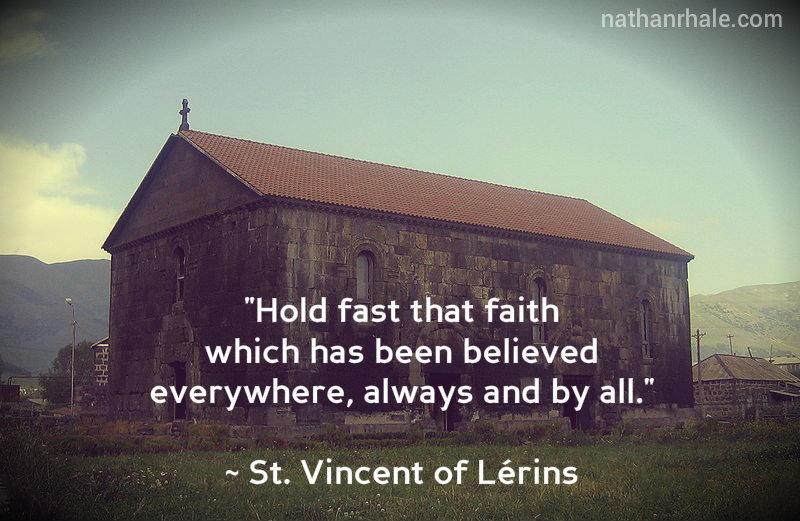
One faith, one hope, one Lord, one baptism
When, in the Apostle’s Creed, we say “I believe in the holy catholic church” we are saying that we believe fundamentally, the church is one. Political and secondary theological issues aside, there is a unity in our common, core confession of Christ that binds all Christians universally into one church. All Christians are part of one catholic Church in this sense and should be able to say this part of the Creed without feeling uncomfortable.
There is another sense in which the word is used, however, and that is to refer to “the Catholic faith.”
The faith once delivered
Jesus gave special teaching authority to the Apostles, who in turn ordained and taught leaders in the church, who came to be called bishops. For one thousand years the Church existed in relative unity under the authority of bishops that came together in ecumenical councils–gatherings of church leaders that passed down what they received from the Apostles and hashed out the theological implications of the Apostolic witness. As challenges to the faith arose, these leaders articulated definitive summaries of the faith and issued theological statements as to how the Scriptures were to be interpreted and Christian worship ordered. The one Catholic Church existed in visible unity.
In 1054 the Great Schism occurred between the East and the West, and with it the degradation of visible unity of the Church. Without a universally agreed-upon authority structure, truly ecumenical councils became impossible. By time the Protestant Reformation had run its course, there were many competing theologies, confessions, and particular churches.
Nevertheless, some churches (while introducing and perhaps over-emphasizing secondary matters) remained faithful to the pre-Schism practice of the Catholic Church and the teachings of the Ecumenical Councils. This doctrine and practice together, once universally acknowledged by all orthodox Christians, are what we now call “the Catholic faith.”
Today all orthodox Christians hold to at least part of the Catholic doctrinal tradition, which includes the doctrine of the Trinity, the dual nature of Christ as fully human and fully Divine, and the rejection of Pelagianism.
In broad strokes, the core of Catholic faith may be said to include:
- Recognition of the Bible as Holy Scripture
- Leadership by bishops in apostolic succession (this means each bishop must trace his ordination back to the Apostles)
- Recognition of the Seven Ecumenical Councils as authoritative in their theological statements
- Acceptance of the Nicene Creed as a definitive statement of Christian orthodoxy
- Worship that is liturgical/ceremonial and centers around Holy Communion
- Sacramental theology that considers Holy Communion and Holy Baptism as real means of grace and signs of the New Covenant.
Everywhere, always, and by all
This is the Christ-centered and authoritative faith we see in a visibly united Catholic Church for one thousand years, illumined by the Holy Spirit as she met challenge after challenge. This Catholic faith has been faithfully passed from generation to generation in the Church from the most ancient times.
In every place the the Gospel has been preached the Catholic faith has been believed, and it endures still to this day, with the majority of the world’s Christians (Roman Catholic, Eastern Orthodox, Anglican, and more) remaining steadfast in their witness to it as the truth. Historically it is certain that this is the faith of the early church and thus–I believe–that of the Apostles. This is important because if the Catholic faith is the faith of the Apostles, then it is the fullness of the truth from the Holy Spirit and carries the authority of Jesus.
This is why I am a Catholic Christian.
Further Reading:
-
Reformation Day Shouldn't Be a Celebration
It’s not that I don’t recognize that the Church was in a rough spot in the Middle Ages.
It’s not that I don’t admire the courage and tenacity of the Reformers in fighting for a faith that was closer to the Early Church that addressed abuses, un-Godly practices, and biblical illiteracy.
But I can’t celebrate Reformation Day.
I’m profoundly grateful for so many things that came out of the Reformation, like the beautiful English liturgy used by Anglicans, a rediscovery of the primacy of Scripture, the Authorized Version, and renewed focus on clergy formation through biblical training. God used the Reformation to bring light into places of darkness, to give the people of God worship in their own language and access to the Sacraments. Historic revival movements began, and many were willing to die and did for their stand for biblical, ancient, and Apostolic truth.
Yes, God has used and continues to used the Reformation and its children, but the Christian Church has failed to really, truly reform from within. Instead the Reformers (sometimes against their will) had to separate themselves, forming new Churches. Ultimately new ecclessiologies developed that essentially gave the individual permission to break communion with other Christians and start their own semi-autonomous group if they are not in full doctrinal agreement.
This has resulted in–over time–thousands of new competing versions of Christianity, all of which claim to be “the most true” based on sectarian readings of the Scriptures. Obviously, they cannot all be correct, yet division, anger, and disunity remain. Unity within diversity is possible and in fact exists as a result of our common confession of the Gospel of Jesus Christ, yet we do not exhibit it with our attitudes and actions.
We refuse Holy Communion to those that differ with us on the exact nature of the Eucharistic mystery, we invalidate baptisms because of secondary issues of form, and there’s often not a sense of a hierarchy of truths. It seems as if some people all but explicitly say, “Either you agree me all the way, or God bless you, I hope you get to heaven but it’s not looking good.”
What about authority? Many say they find it in the Bible, but in practice they find in themselves and their own judgement of the “plain and obvious meaning” of passages that have from the beginning been debated. Never mind that for most of these issues, an Undivided Church spoke with one authoritative voice–a voice most of us that identify as Evangelicals have largely forgotten or chosen to ignore.
The divisions (not necessarily disagreements) that exist in the Church today damage the credibility of our witness to truth of Christ and stand in direct opposition to will of our Lord, that
they may all be one, just as you, Father, are in me, and I in you, that they also may be in us, so that the world may believe that you have sent me. The glory that you have given me I have given to them, that they may be one even as we are one, I in them and you in me, that they may become perfectly one, so that the world may know that you sent me and loved them even as you loved me. (John 17:21-23, ESV)
It’s one thing to bear with one another, as the Scriptures teach, striving with zeal to “to equip the saints for the work of ministry, for building up the body of Christ, until we all attain to the unity of the faith and of the knowledge of the Son of God…,” but too many Christians have stopped trying (Ephesians 4:12-13, ESV). Phrases like, “we’ll never be one visible church again this side of Jesus coming back” are thrown around with careless abandon. With Christ all things are possible and this is his desire for us.
Don’t shortchange the Holy Spirit.
Reformation Day has become in many corners an excuse to celebrate caricature and delight in division instead of remembering God’s faithfulness to his church and pursuing unity in the Spirit. It’s time for Protestants to take the log out of our eye and get to work on being the Body of Christ.
I therefore, a prisoner for the Lord, urge you to walk in a manner worthy of the calling to which you have been called, with all humility and gentleness, with patience, bearing with one another in love, eager to maintain the unity of the Spirit in the bond of peace. There is one body and one Spirit—just as you were called to the one hope that belongs to your call—one Lord, one faith, one baptism, one God and Father of all, who is over all and through all and in all. (Ephesians 4:1-6, ESV)
subscribe via RSS

